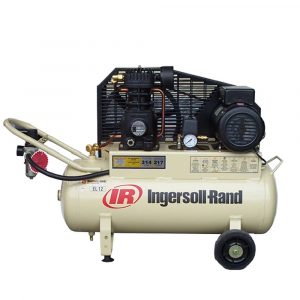March 28, 2019
 Is your manufacturing unit dependent on compressed air? If so, then it’s important to keep it in working order as any downtime can lead to a significant decline in your company’s overall production. But experiencing problems with the air compressor is inevitable. Many people go for repairs since it’s the more economical option in the short term. But there comes a point in which the cost of repairs exceeds the cost of replacing the unit altogether. Keep reading to learn the different factors to consider when deciding whether to repair or replace your air compressor.
Is your manufacturing unit dependent on compressed air? If so, then it’s important to keep it in working order as any downtime can lead to a significant decline in your company’s overall production. But experiencing problems with the air compressor is inevitable. Many people go for repairs since it’s the more economical option in the short term. But there comes a point in which the cost of repairs exceeds the cost of replacing the unit altogether. Keep reading to learn the different factors to consider when deciding whether to repair or replace your air compressor.
Cost should be your first consideration. The upfront cost of a brand new air compressor is higher than the cost of repairs. But you should also compare the longevity of the unit. For example, if you decide to buy an Ingersoll Rand air compressor, it may provide a lifespan of more than ten years. If you spend an amount close to purchasing a new air compressor just to repair the unit but the lifespan will only improve by three or four years, then you’d do yourself a favor by buying a new air compressor. Moreover, the new unit may be energy efficient, thus keeping more money in your pocket by saving on electricity bills. So, compare the cost of the repair and replacement and see which one will last longer.
If you don’t know the reason why the air compressor is not working and face a choice between purchasing a new one or an expensive repair, here are some of the things to consider:
Repairing the air compressor may be a cost-effective solution compared to buying a new model. Repairs are the way to go if you find yourself in the following scenarios:
It will be wise to get in touch with a professional who can check the condition of the air compressor and decide if it should be replaced or repaired. After all, there is big money involved in purchasing a new compressor. So, take time to decide.
Scott Ellyson, CEO of East West Manufacturing, brings decades of global manufacturing and supply chain leadership to the conversation. In this episode, he shares practical insights on scaling operations, navigating complexity, and building resilient manufacturing networks in an increasingly connected world.